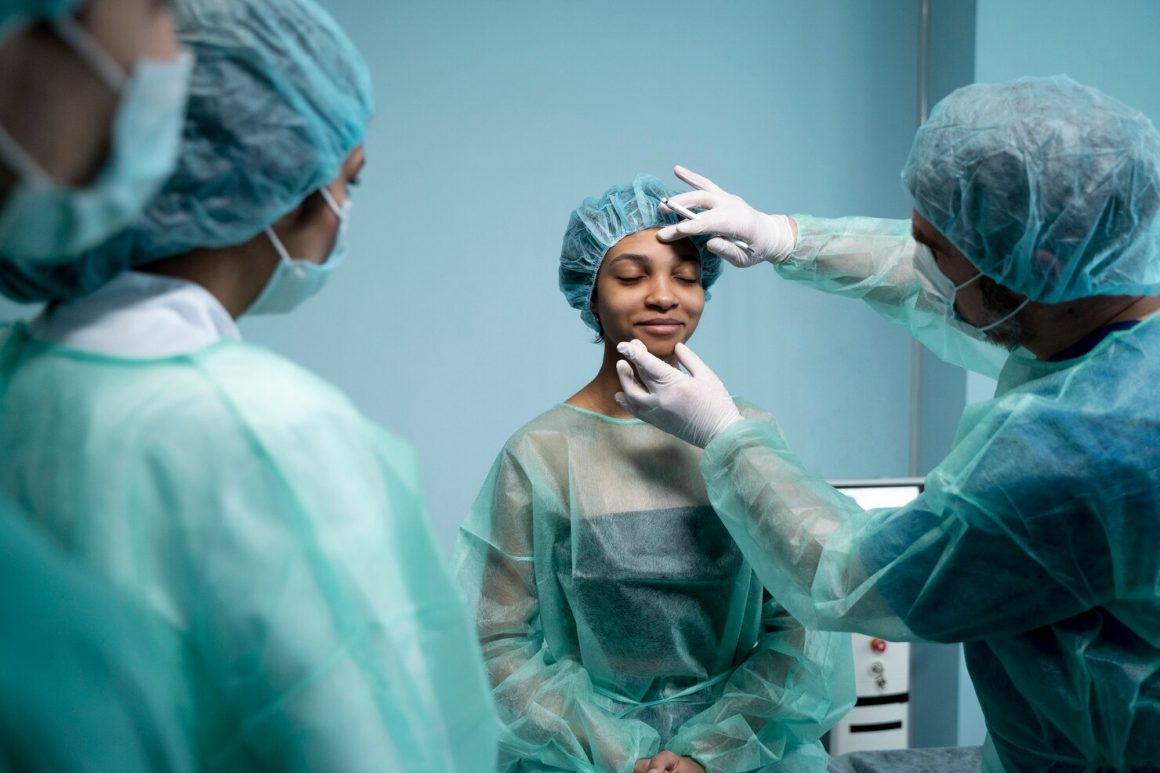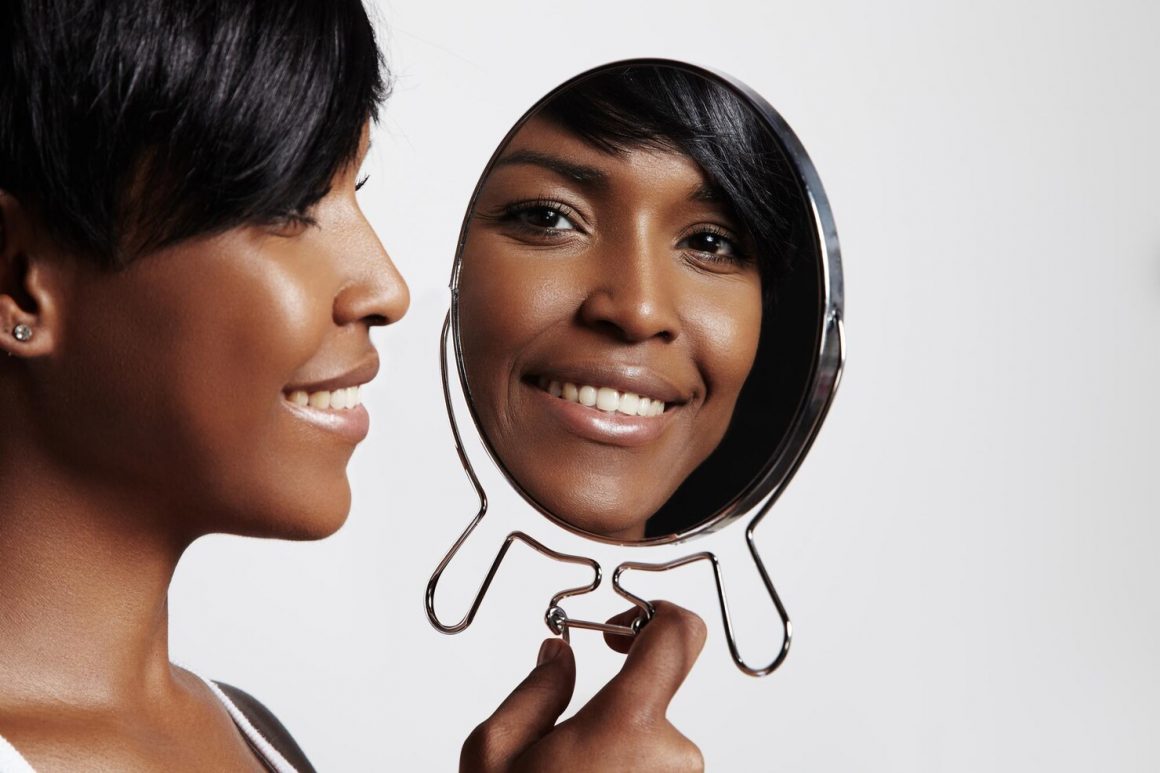By Funke Babs Kufeji
When it comes to the topic of cosmetic surgery, it’s hard to deny the strong pull of transformation. For many, it promises a chance to address insecurities, refine a feature they’ve felt self-conscious about, or even reverse changes they’ve struggled to embrace. Today, cosmetic surgery has evolved into a multi-billion-dollar industry, with patients worldwide booking appointments for everything from subtle tweaks to major body modifications. But does going under the knife really offer that sought-after boost to self-confidence and self-esteem?
Amid the constant push to ‘be our best selves,’ many people find that cosmetic surgery offers a path to realising a version of themselves they’ve dreamed of for years. For some, it might be about feeling comfortable in a swimsuit, while for others, it’s about looking in the mirror and recognising themselves after significant life changes like childbirth or weight loss. However, the psychological effects of cosmetic surgery can be complex. Although enhancing physical appearance can contribute to a more positive self-image, it’s rarely the whole story.
“People often think that cosmetic surgery is a quick fix for low self-esteem,” says Dr Ebere, an Abuja-based psychologist who has studied body image and self-worth. “But the reality is, while it can address certain insecurities, lasting confidence comes from a mix of internal and external factors.”

Sarah, a 32-year-old marketing executive who underwent rhinoplasty at 29 after years of feeling self-conscious about her nose, says, “I used to hide in photos, always angling my face a certain way. I never really felt free,” she shared. “After the surgery, I felt lighter, more willing to be seen. It wasn’t just about having a smaller nose—it was about feeling more like myself.” For Sarah, the procedure marked a turning point in her relationship with her appearance, one that rippled into other areas of her life, making her more confident in her career and social interactions.
But the journey isn’t always as simple. While many report feeling more empowered post-surgery, this empowerment often stems from feeling in control of one’s appearance, not from a superficial transformation. In fact, cosmetic surgeons frequently encounter patients who expect the procedure to solve deeper self-worth issues—issues that surgery alone can’t fix. “I always have a conversation with my patients about their motivations,” explains Dr. Michael, a well-known plastic surgeon. “It’s crucial that they’re making the choice for themselves, not because of outside pressures or unrealistic beauty standards. Surgery can enhance confidence, but it’s not a replacement for self-acceptance.”
Interestingly, studies have shown a strong link between realistic expectations and patient satisfaction post-surgery. Those who approach cosmetic procedures with a desire for enhancement rather than perfection tend to report higher levels of satisfaction. This distinction is essential because while cosmetic surgery can change how someone looks, it doesn’t necessarily change how they feel about who they are. In fact, a recent study found that while around 80% of cosmetic surgery patients reported feeling happier with their appearance after surgery, only about 50% noted a lasting boost in self-esteem.
It’s also worth noting that cosmetic surgery is not immune to the pressures of modern beauty ideals. In a social media-driven era where flawless selfies and picture-perfect influencers flood our screens, the line between personal choice and societal expectation can become blurry. It’s no surprise that more people are seeking procedures like lip fillers and facelifts—after all, we’re constantly being fed images of what we’re ‘supposed’ to look like.
For those who choose to go forward with surgery, the journey often brings about a form of personal growth. Being able to make a deliberate change to their body can inspire a sense of agency and empowerment that can improve self-perception and how they interact with the world. Jessica, a fitness trainer who recently opted for breast augmentation, reflects on her decision: “I wanted to feel more balanced, more like the version of myself I envisioned. The surgery didn’t change who I am, but it brought me closer to a place of self-acceptance.”
However, cosmetic surgery alone won’t necessarily rewrite our relationship with self-worth. Experts agree that building self-esteem is multifaceted. “True confidence is built through a combination of self-care practices—emotional and physical,” says Dr. Michael. “It’s about nurturing mental health, adopting habits that make you feel strong, and being able to embrace imperfections without letting them define you.”
That said, cosmetic surgery can provide a bridge to feeling more at ease with oneself, especially for those whose insecurities have held them back for years. Some might argue that the sense of confidence gained through cosmetic surgery is superficial, but for many, the results go far beyond skin-deep. Cosmetic procedures allow them to shed insecurities that have been weighing them down for years, freeing them to pursue other goals in life.
Ultimately, the relationship between cosmetic surgery and self-esteem is a delicate one. It’s about understanding that while a physical change can be impactful, the journey to genuine self-confidence goes deeper. It involves recognising our intrinsic worth and cultivating a holistic sense of self-acceptance that isn’t reliant on looks alone. “Surgery gave me a starting point,” says Sarah, “but the real confidence came from realising I’m more than my appearance.”












